
All categories
Featured selections
Trade Assurance
Buyer Central
Help Center
Get the app
Become a supplier

(3011 products available)

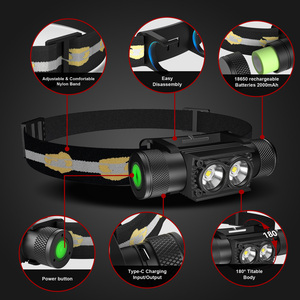
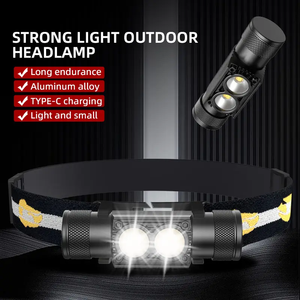
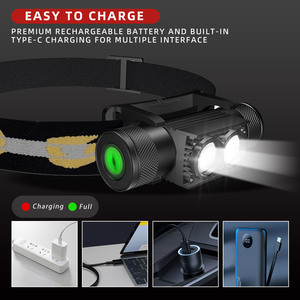
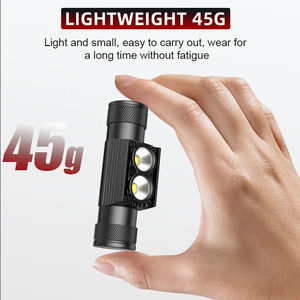
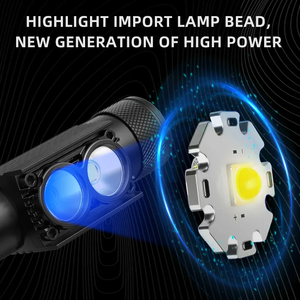































In the realm of professional lighting, headlamp uses have emerged as essential tools for various industries. These specialized lighting devices are designed to provide hands-free illumination, making them ideal for activities that require the use of both hands while ensuring visibility in dark or low-light environments. headlamp uses are commonly used by professionals such as miners, construction workers, and outdoor enthusiasts, offering convenience and safety. Their design typically includes adjustable straps to fit securely on the user's head, allowing for mobility and comfort. The evolution of headlamp uses has led to advancements in technology, improving their functionality and efficiency.
The market offers a diverse range of headlamp uses to cater to different needs and applications. Some common types include LED headlamps, rechargeable headlamps, and tactical headlamps. LED headlamps are popular for their energy efficiency and long lifespan, providing bright illumination with minimal power consumption. Rechargeable headlamps are favored for their cost-effectiveness and environmental benefits, eliminating the need for disposable batteries. Tactical headlamps, on the other hand, are designed for rugged use, featuring enhanced durability and multiple lighting modes for various operational settings. Each type of headlamp uses is engineered to meet specific requirements, ensuring optimal performance in its intended application.
headlamp uses are equipped with a range of features that enhance their functionality and user experience. These include adjustable brightness levels, zoom functions, and multiple lighting modes such as floodlight, spotlight, and strobe. Adjustable brightness allows users to control the intensity of the light based on their needs, conserving battery life when full illumination is not necessary. Zoom functions enable users to focus the beam for detailed tasks or widen it for broader coverage. The variety of lighting modes available in headlamp uses ensures adaptability to different situations, from emergency signaling with strobe mode to general illumination with floodlight mode. Additionally, many headlamp uses are designed to be water-resistant or waterproof, offering reliability in adverse weather conditions.
The construction of headlamp uses involves the use of durable materials to ensure longevity and performance. Common materials include high-grade plastics, aluminum alloys, and silicone. High-grade plastics are often used for their lightweight properties, making the headlamp comfortable to wear for extended periods. Aluminum alloys provide strength and durability, especially in tactical headlamps that require resilience in harsh environments. Silicone is utilized in the straps and seals to offer flexibility and comfort, as well as to create watertight seals for waterproof models. The choice of materials directly impacts the durability, weight, and comfort of headlamp uses, allowing manufacturers to tailor them to specific user needs and conditions.
To maximize the benefits of headlamp uses, it is important to understand their features and limitations. Users should select a headlamp based on the specific requirements of their activity, considering factors such as brightness, battery life, and weather resistance. Proper adjustment of the head strap ensures a secure fit and optimal comfort during use. Familiarity with the various lighting modes and functions, such as zoom and brightness adjustment, allows users to tailor the light output to their needs. Regular maintenance, including cleaning the lens and checking the battery, ensures the longevity and reliability of headlamp uses. Understanding the importance of environmental conservation, users should opt for rechargeable models and responsibly dispose of batteries to minimize ecological impact.
Selecting the ideal headlamp uses for professional tasks involves considering several critical factors. The brightness level is paramount, as it determines the intensity of illumination. For activities such as night-time construction work or cave exploration, a higher lumen count is necessary to ensure adequate visibility. Additionally, the beam distance and width should be evaluated based on the environment in which the headlamp uses will be used. A narrow beam is suitable for focused tasks, while a wide beam covers more area for navigation. The type of battery and runtime are also important considerations, ensuring the headlamp uses can operate for the duration of the task without frequent recharging or battery changes.
Comfort and fit are equally vital when choosing headlamp uses. Professionals often wear headlamps for extended periods, making it essential to select models with adjustable and cushioned straps that distribute weight evenly across the head. The weight of the headlamp uses itself should be balanced to minimize strain. Consideration of the environment is also crucial; waterproof or water-resistant headlamps are ideal for damp or rainy conditions, while dustproof models are better suited for dry, dusty environments. These features ensure that the headlamp uses remains reliable and functional in various settings.
When evaluating headlamp uses, key features include brightness, beam pattern, battery type, and durability. Brightness is measured in lumens and should match the lighting needs of the task. Beam patterns, whether focused or wide, should suit the specific requirements of the user's environment. Rechargeable batteries are often preferred for their long-term cost-effectiveness and environmental benefits. Durability features like water and impact resistance are crucial for headlamp uses used in challenging conditions.
The beam distance of headlamp uses is a significant factor in its performance, as it affects how far the light can reach. For tasks requiring awareness of distant surroundings, such as search and rescue operations, a longer beam distance is advantageous. Conversely, for close-up tasks, a shorter beam distance with a floodlight effect may be more appropriate. Understanding the beam distance helps users select headlamp uses that best fits their specific needs.
Many headlamp uses are designed to withstand harsh weather conditions, including rain, snow, and extreme temperatures. Features such as water resistance, often indicated by an IPX rating, and robust construction materials contribute to their reliability in adverse conditions. However, it's essential to verify the specific weather resistance capabilities of headlamp uses to ensure suitability for the intended environment.
Adjustable brightness in headlamp uses is crucial for adapting to varying lighting needs and conserving battery life. Users can increase brightness for tasks requiring intense light and reduce it for activities needing less illumination, thus extending the runtime of the headlamp. This flexibility enhances the versatility and efficiency of headlamp uses, making it suitable for a wide range of professional applications.
Rechargeable headlamp uses offer several advantages over traditional battery-operated models. They reduce the need for disposable batteries, which is cost-effective and environmentally friendly. Rechargeable models often come with built-in indicators to show battery life, helping users manage power levels effectively. However, the choice between rechargeable and battery-operated headlamp uses depends on the specific usage scenario, including access to charging facilities and the duration of use.